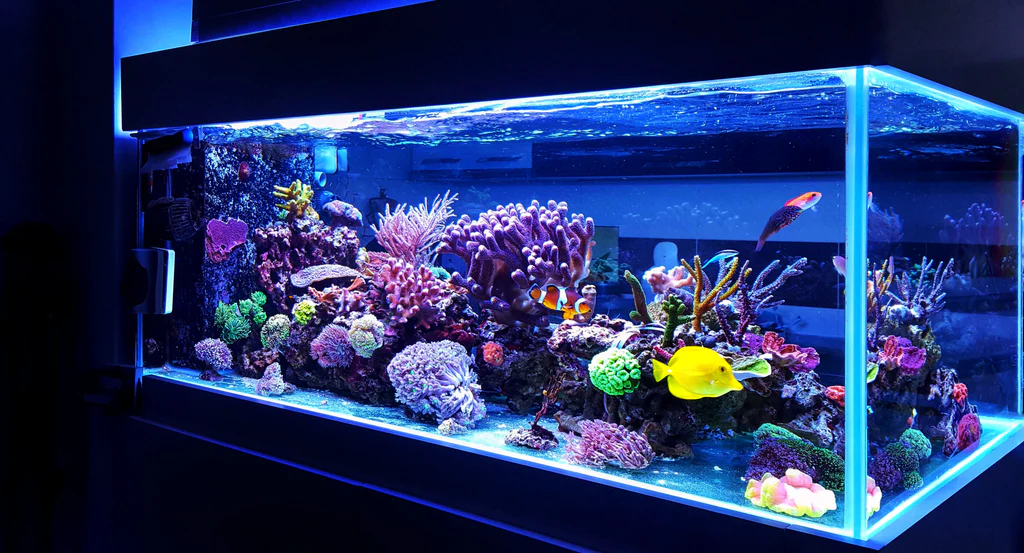Do you know that for some people, owning an aquarium isn’t just a hobby; it’s an art? Are you among those and want to set up the habitat with the exotic fish species?

Well, if you’re looking to add a splash of color and life to your aquarium, exotic saltwater fish species are the way to go. These vibrant, unique creatures come in dazzling patterns, bold hues, and fascinating behaviors that are sure to captivate any viewer. However, selecting the right species and ensuring they thrive in your tank requires great care, from where to get them to the ongoing maintenance they need.
But no worries!
This article will take you through the answers to all your questions, which will help to keep your new aquatic friends happy and healthy. Enjoy reading!
From Where Can You Get Them?
When you want exotic saltwater fish for aquarium at your place, it becomes very important to select a reputable supplier. You can source these fish from a variety of places.
Thanks to digitalization, several online stores specialize in selling captive-bred and wild-caught saltwater fish. They ship them directly to your door and provide a wide variety of marine life, such as corals and invertebrates, including rare and exotic species. Some also offer a wide range of supplies essential for maintaining a healthy aquarium, from filtration systems to water conditioners. This makes it a one-stop shop for saltwater aquarium enthusiasts.
Additionally, you must be sure to check reviews, look for stores with healthy fish, and confirm that they are ethically and sustainably sourced.
Exotic Species to Choose From
The world of exotic saltwater fish is incredibly diverse, so the selection of the desired fish can feel exciting. Here are a few popular choices:
1. Anthias: Known for their vibrant colors, they are small, schooling fish often found in coral reefs. They are peaceful and require a well-maintained tank with regular feeding due to their high metabolism.
2. Basslets: These small, brightly colored fish are popular in saltwater aquariums. They are hardy and typically peaceful.
3. Batfish: These fish have a unique appearance with their flat, disk-like bodies and long fins. They grow quite large, so they need ample space.
4. Blennies: Known for their playful personalities, blennies are small, bottom-dwelling fish. They are usually hardy and great algae eaters, which is also helpful for tank maintenance.
5. Damsels: These hardy and affordable fish are often used in starter tanks. However, they can be territorial and aggressive, especially in smaller tanks.
6. Eels: Saltwater eels, like moray eels, are fascinating, elongated fish. They tend to hide in crevices, can be aggressive, and also require a well-secured tank to prevent escapes.
7. Frogfish: These small ambush predators have a unique, bulky appearance and can camouflage well in their surroundings. They are slow-moving but effective hunters.
8. Hawkfish: Known for their perching behavior, hawkfish are active. They can be aggressive toward smaller fish, but they are generally resilient and easy to care for.
9. Hamlets: These are small, reef-dwelling fish known for their vibrant patterns and slow movements. They are usually peaceful and make a striking addition to aquariums.
10. Lionfish: For those seeking a dramatic centerpiece, lionfish are known for their flowing, spiky fins and venomous spines. Though beautiful, they require careful handling and should only be kept by experienced aquarists due to their venom and large size.
Based on their merits, drawbacks, and your preferences, you can bring them to your home.
Selecting What Suits Best to You
If you think that the right fish is just picking your favorites, you are so wrong. It is more than that. You will need to take various factors into account to confirm a good, harmonious, healthy environment for your aquatic pets. Below are those factors:
- Tank Size: Some fish require larger tanks, while others can thrive in smaller setups. So, arrange a tank according to that.
- Compatibility: Certain fish species may not feel and behave well with others. So, before making a purchase, you should research the harmony levels of different species to avoid aggression or stress among them.
- Diet and Feeding: Some species require live food, while others can feed on a varied diet of pellets and frozen foods. So, select them accordingly to certify their good health.
Final Thoughts
Having an aquarium with exotic saltwater fish is an exciting and rewarding effort. By carefully selecting them, you can create a stunning aquatic display that will mesmerize anyone who sees it. It will add a new level of beauty and fascination to your aquarium.



